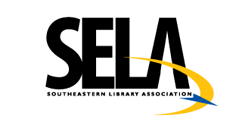Abstract
Increasingly, the role of librarians in higher education is shifting from primarily librarian-as-expert to include librarian-as-educator (Holt, 2002). As a result, academic librarians with a wide variety of job titles are finding themselves contributing to the instructional services of their library (Hall, 2013). Even those librarians who have instruction as a principal responsibility may have little to no training or experience in instruction when they begin teaching students in one-shot or credit-bearing instruction situations. In a recent study of employer’s expectations for library instruction training, nearly 90 percent of respondents found instruction to be important to their library (Hall, 2013). The study also found that employers expect new librarians with instruction duties to find training on the job or through observation, not necessarily through formal training programs (Hall, 2013). While informal training may be less than ideal, it is sometimes the only available option to instruction librarians. One way librarians can make concrete, positive changes to their instruction skills without a formal instruction training program is by engaging in reflective practices about their teaching decisions.
Publication Date
10-3-2014
